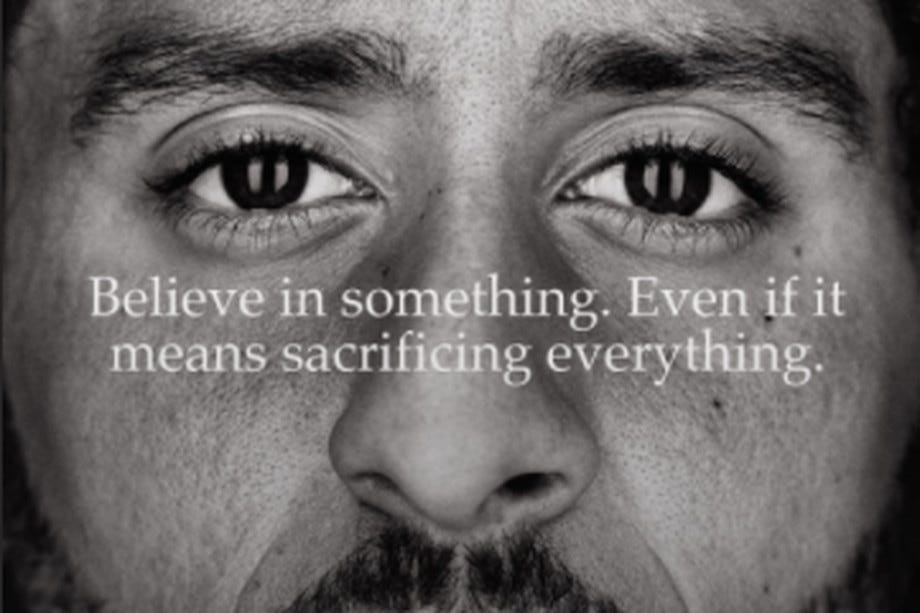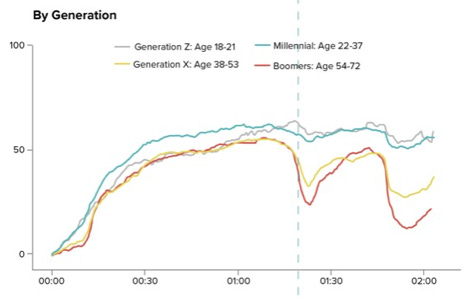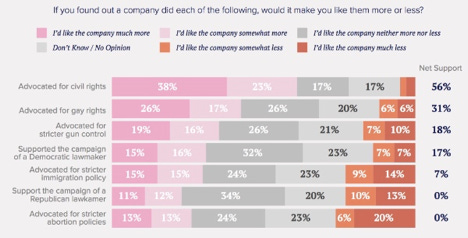How is everyone’s Trump diet going? It’s been rough sledding for me. We do not live in utopia, and all but 227 of us on this planet do not live in Utopia, Texas. The town fathers’ first choice was to call it Montana, Texas, but that name was taken. Later, plans to locate a utopian socialist commune there fell through. Perfection eludes us everywhere.
Pre-order: My friend S.G.’s new book about the last year of the Civil War called Hymns of the Republic. Remember, pre-ordering a book is the best way to support an author you like. Second best way? Share this link on your social networks.
Vote: Still time to fill out your Best of Austin 2019 ballot. Voting ends Monday, Oct. 7. One finalist I want to mention in Spike Gillespie for best local non-fiction author. She also officiated my wedding and did so marvelously. I met her at one of Molly Ivins’ magic parties back in the ‘90s, though Spike doesn’t remember that.
Read: Uber trying to be a normal company, a more sustainable Christmas, why you shouldn’t buy off-brand iPhone cables, how much wood IKEA uses (!), why life expectancy is rising in Russia, Walmart’s new weird marketing push, the funniest blog post you’ll read about the market is repricing risk, a great article on Robert Kraft’s alleged sex crimes, how much of our stock market is controlled by machines, the similarities between being a saboteur and a bad boss, the narrow path to a Democratic Senate, what scientists are fighting about this week, an odd German journalism custom that got weird, why journalists need to guard against disinformation, and some other stuff.
Watch: Between Two Ferns: The Movie, Rachel Getting Married, Can You Ever Forgive Me?, and The Politician.
Listen: Patti LaBelle sing the alphabet song on Sesame Street
But first: It turns out Nike was right to run this ad.

To say we are a divided country or that we live in an era of divisiveness is perhaps the most uncontroversial thing someone can say these days, and not without reason. A good example is a study found that the most divisive brands are media companies. Democrats love and Republicans hate CNN, reverse for Fox, which is obvious. Democrats, in fact, hate anything with Fox in the name, the eponymous network, Fox Business, Fox News, and Fox Nation, which I didn’t even know was a thing. Republicans hate everything else: ABC, CBS, NBC, MSNBC, even CNBC, the Post and the Times, but nothing as much as they hate CNN.
Only three non-media companies made the list of most-divisive brands: Trump Hotels and Smith & Wesson, which are loathed by Democrats, and one that was disliked by Republicans. It was the only apparel company to make the list, a small shoe company founded in Eugene, Oregon a million years ago called Nike.
And Nike wouldn’t have it any other way. Sometimes you have to try to please everyone, and sometimes you only need to please your customers. The latter is what Nike was going for when they ran a television commercial for the 30th anniversary of its "Just Do It" campaign featuring controversial quarterback Colin Kaepernick to pitch a message of believing in something "even if it means sacrificing everything."
Kaepernick, of course, is the one who started kneeling during the national anthem to protest police violence, placing Nike in the crosshairs of a national political controversy. What to anyone over 40 looked like political posturing looked to millennials and Generation Z as taking a stand. Understanding why Nike did it—and why it worked—is instructive in helping us understand why brands are taking more political positions these days than your average congressman.
The initial public reaction to Nike’s ad was swift and uniformly negative. The company's stock dropped 3 percent in a day. The hashtags #BoycottNike and #JustBurnIt trended on Twitter. People burned their running shoes and cut the company's famous logo out of their gym socks. A Louisiana mayor ordered his city's youth programs not to buy or wear any Nike gear. A Georgia college announced it would no longer purchase anything with the trademark swoosh. A poll taken in the immediate aftermath of the news of Kaepernick's involvement in the "Just Do It" campaign—before, in fact, the ad even debuted—found that the company's net favorability dropped in every demographic and from +71 percent to +35 percent overall.
And when the ad did air, there did not seem to be much reason to think Nike was going to pull through. Morning Consult conducted a dial test in which 2,000 Americans watched the ad and registered their reactions by turning a dial right for positive and left for negative. As soon as Kaepernick's face hit the screen—marked by the vertical dashed line in the graph below— viewers registered sharply negative reactions. (Interestingly, the reactions were already turning negative immediately prior to that when LeBron James, a black basketball player who has feuded on Twitter with the President, was on screen, and they went much lower still later in the commercial when it featured tennis star Serena Williams, who is also black, indicating that there might be other factors in play besides politics.)

Slowly, though, the reaction became more nuanced if not ultimately positive for Nike. Keep in mind the company's favorability landed at +35 percent, which means it's still pretty popular, and Nike's favorables more than doubled when its customers were polled. The hashtag boycotts got all the media attention, but there was actually more positive mention on Twitter than negative. All the hubbub amounted to $43 million in free advertising, translating to a 31% spike in online sales over the previous year, and its stock price rebounded. A year later, Nike reports record sales and earnings that beat expectations.
What did Nike know that everyone else did not?
For starters, Nike knew that the public expects companies and CEOs to speak out on social issues these days. The annual Business Reputation Tracker in the UK found that 92 percent of Britons expect businesses to take public stands on what used to be thought of as private issues. In the U.S., 77 percent believe that CEOs need to speak out in defense of his or her company's values, according to a Morning Consult poll from in 2018.
This expectation is even more pronounced among U.S. millennials. They don't just expect companies to speak out, they demand and reward (or punish) it. And in what should give us a good insight into Nike's decision-making, when asked how they would react if a company advocated for civil rights, 61 percent of millennials (who, by the way, make up two thirds of Nike's customers) said they would like the company more versus 4 percent who would like it less. In fact, Morning Consult concluded that among millennials advocating for civil rights and gay rights were the safest stances a company could take. It's safe to say that this is counter-intuitive for Baby Boomers and Generation X, but it's exactly where most of Nike's customers are.

As controversial or unusual as corporate activism might seem, it's become increasingly commonplace for companies and their leaders to engage in political issues when—and this is key—the company's values are at stake. Examples of this include several corporate responses to the 2017 executive order that banned entry into the U.S. by refugees from certain Muslim-majority countries—also called the Muslim ban or the travel ban. Airbnb ran an ad during the Super Bowl talking about how they welcomed guests "no matter who you are, where you're from, who you love or whom you worship." Lyft, which encourages refugees in the U.S. to drive for the ride hailing company, pledged to donate $1 million to the ACLU. And more than 100 CEOs, many of whom led companies that employed people from the Muslim-majority countries, signed an amicus brief opposing the executive order, which was upheld by the Supreme Court.
It's the same with Nike's Kaepernick ad. Remember, Nike generated a controversy 25 years ago when Charles Barkley declared in an ad that he was a basketball player, not a role model. Two years later, a "Just Do It" ad featured an openly gay, HIV-positive runner. Other Nike ads have advocated for racial equality, the disabled, and gender equity. Is it any wonder, then, that Nike not only made Kaepernick its spokesperson for social activism—but that it worked?
I'll admit, corporate activism does not feel natural to me. My first reaction is that a shoe company should stay out of politics. Not so with millennials and Generation Z, who expect brands to step up when their values are threatened. Nike's Kaepernick ad provides a good case study in when it's smart to speak out. Yes, they’re doing this to make money, but consider this: Can you imagine how mad Nike’s customer base would have been if a Nike athlete took a knee, earned the President’s ire, and they said nothing, or worse, dropped him?
This is the world we live in. We expect more leadership, morality, and honesty from a shoe company than from a president. And yes, I realize I got almost all the way through this without mentioning the President-who-shall-not-be-named, but this is also the world we live in.
What I’m reading
More evidence of the demise of the era of disruption? Uber is unable to adjust to doing a thing and making money at it. Also, the coffee.
Never occurred to me that super-fast delivery left a bigger carbon footprint. Apparently, Americans are increasingly willing to pick up packages and choose less-speedy options to save the planet. Related, vintage clothing is going to be hot this year for holiday gift-giving.
Here’s why you should NOT buy off-brand iPhone cables.
IKEA uses 1 percent of the world’s wood supply every year. On the other hand, meatballs.
Life expectancy for Russian men has increased more than a decade since I lived there in the ‘90s, which is probably unrelated. More likely it has to do with Russians drinking less because of higher taxes and regulations, such as not being allowed to drink on the street anymore.
Walmart is planning a big marketing push on unifying America.
Thanks to B.H. for sharing this funny, readable blog post on how the market is repricing risk.
The law they used to get a warrant for the massage parlor where Robert Kraft was arrested? The Patriot Act. Sending a female Asian reporter to cover this story for Vanity Fair was smart, and the article was surprising and empathetic.
Speaking of terrifying things that could screw up the world: two-thirds of the stock market is run by algorithms: "New artificial-intelligence programs are also writing their own investing rules, in ways their human masters only partly understand."
This is amazeballs: “What does it say about broken workplace culture in America if the cumbersome protocol and hierarchical malarkey is reminiscent of Nazi-era espionage sabotage?”
There’s a narrow path to a Democratic Senate majority that requires winning all toss-up seats and at least one leaning Republican seat.
“The World’s Slowest Pizza Delivery” is a marketing gimmick for aged cheese. (The cheese had to age 18 months before they could make the pizza. Get it?)
Latest studies indicate: Scientists are really mad at a new study saying that red meat isn’t so bad for you. They can shut it.
So far, advertisers are not refusing to have their ads run alongside stories about impeachment…yet.
News nerds: Heh. In Germany, it’s customary to give an interview subject approval on his answers. This backfired for someone who withdrew approval. Reading the news makes you miserable, readers say. Bob Woodward’s controversial interview of the authors of She Said was a controversial clash; was it generational or cultural? Journalists need to be on guard against disinformation because it discourages political engagement.
Last word: This is one helluva headline: “Fox News Host Todd Starnes Out After Suggesting Democrats Worship Pagan God Moloch”
What I’m watching
In this as in all things: Glen Weldon was right, and Between Two Ferns: The Movie is funny. I am not watching Joker, because Glen Weldon said it’s dull, but also because it might be a metaphor for unfunny white men mad about so-called “cancel culture.”
Finally got around to seeing Rachel Gets Married, and damn, it was good, as was Can You Ever Forgive Me? (Yes, I know I’ve been watching more than my ration of television. Don’t judge. I’ve been sick.)
But I loved Netflix’s The Politician. It’s a big, colorful Ryan Murphy take on a Wes Anderson world, but subtlety reigns underneath as ambition mixes with morality. Murphy dares to suggest that some people are actually born to be in it. My name is Jason Stanford, and I do most emphatically not endorse this message, but dammit it was fun to watch, and I can’t wait for the second season.
What I’m listening to
My life has two distinct parts. Before I heard Patti LaBelle sing the alphabet song on Sesame Street, and after. I mean, damn.
What do you think of today's email? I'd love to hear your thoughts, questions and feedback. I might even put ‘em in the newsletter if I don’t steal it outright.
Enjoying this newsletter? Forward to a friend! They can sign up here. Unless of course you were forwarded this email, in which case you should…
The Stanford Newsletter Experiment is a finalist for best local blogger in the Austin Chronicle’s Best of Austin poll. Vote here by searching for “local blogger.” You can only vote once per email address, and you don’t have to be from Austin to vote. It would be a big help if you not only voted but shared the ballot on your own social networks. Honestly, it doesn’t matter at all if I win, but it’s an election, and after spending a couple decades as a political consultant campaigning is written into my muscle memory.
If this newsletter is of some value to you, consider donating. Honestly, I’m not doing this for the money. I’m writing this newsletter for myself, and for you. And a lot of you are contributing with letters and by suggesting articles for me to post. But some of you have asked for a way to donate money, so I’m posting my Venmo and PayPal information here. I promise to waste every cent you give me on having fun, because writing this newsletter for you is some of the most fun I’ve had. Venmo me at @Jason-Stanford-1, or use this PayPal link.



